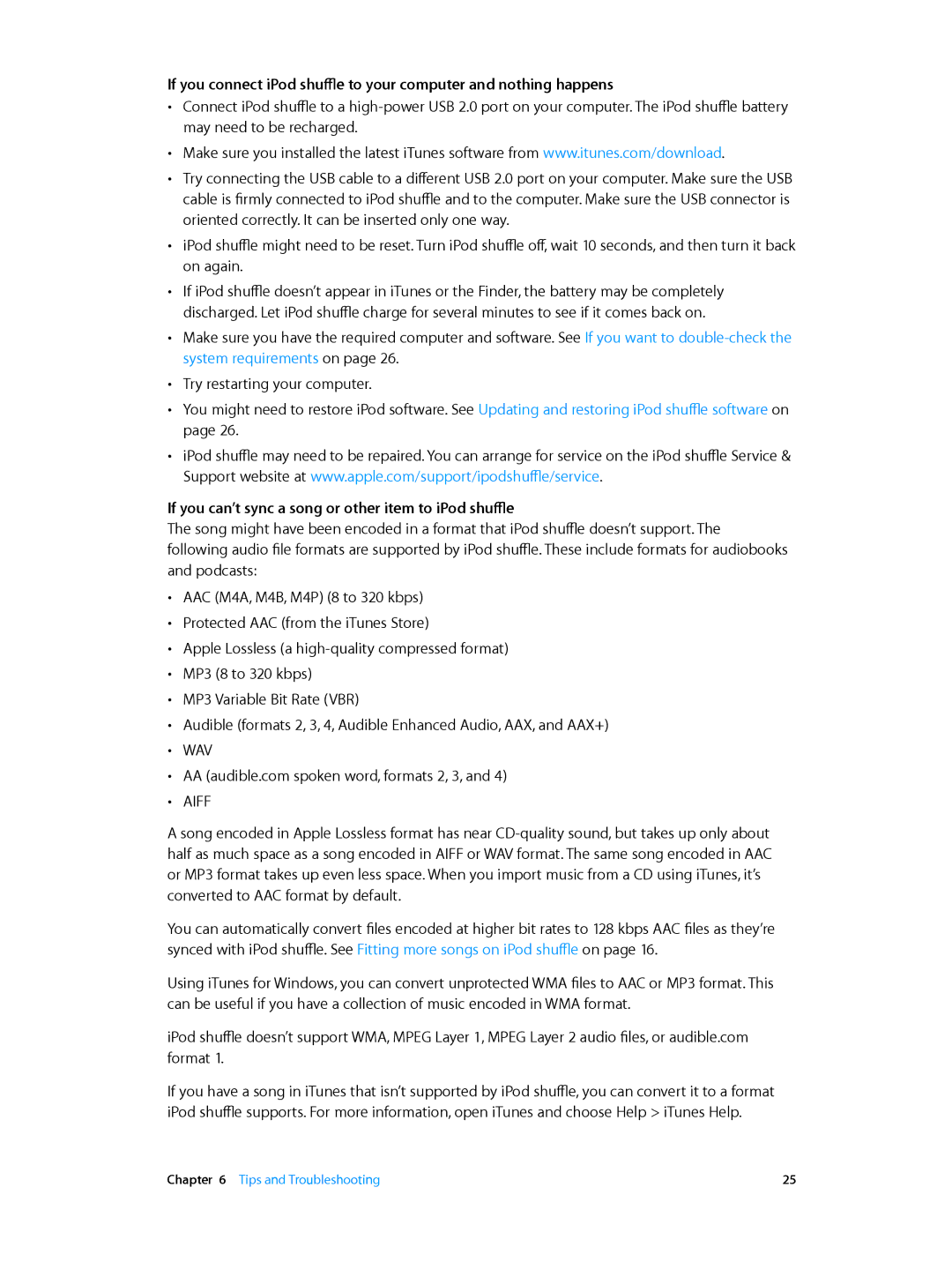If you connect iPod shuffle to your computer and nothing happens
••
••
••
••
••
••
••
••
••
Connect iPod shuffle to a
Make sure you installed the latest iTunes software from www.itunes.com/download.
Try connecting the USB cable to a different USB 2.0 port on your computer. Make sure the USB cable is firmly connected to iPod shuffle and to the computer. Make sure the USB connector is oriented correctly. It can be inserted only one way.
iPod shuffle might need to be reset. Turn iPod shuffle off, wait 10 seconds, and then turn it back on again.
If iPod shuffle doesn’t appear in iTunes or the Finder, the battery may be completely discharged. Let iPod shuffle charge for several minutes to see if it comes back on.
Make sure you have the required computer and software. See If you want to
Try restarting your computer.
You might need to restore iPod software. See Updating and restoring iPod shuffle software on page 26.
iPod shuffle may need to be repaired. You can arrange for service on the iPod shuffle Service & Support website at www.apple.com/support/ipodshuffle/service.
If you can’t sync a song or other item to iPod shuffle
The song might have been encoded in a format that iPod shuffle doesn’t support. The following audio file formats are supported by iPod shuffle. These include formats for audiobooks and podcasts:
••
••
••
••
••
••
••
••
••
AAC (M4A, M4B, M4P) (8 to 320 kbps) Protected AAC (from the iTunes Store)
Apple Lossless (a
MP3 Variable Bit Rate (VBR)
Audible (formats 2, 3, 4, Audible Enhanced Audio, AAX, and AAX+)
WAV
AA(audible.com spoken word, formats 2, 3, and 4)
AIFF
A song encoded in Apple Lossless format has near
You can automatically convert files encoded at higher bit rates to 128 kbps AAC files as they’re synced with iPod shuffle. See Fitting more songs on iPod shuffle on page 16.
Using iTunes for Windows, you can convert unprotected WMA files to AAC or MP3 format. This can be useful if you have a collection of music encoded in WMA format.
iPod shuffle doesn’t support WMA, MPEG Layer 1, MPEG Layer 2 audio files, or audible.com format 1.
If you have a song in iTunes that isn’t supported by iPod shuffle, you can convert it to a format iPod shuffle supports. For more information, open iTunes and choose Help > iTunes Help.
Chapter 6 Tips and Troubleshooting | 25 |
